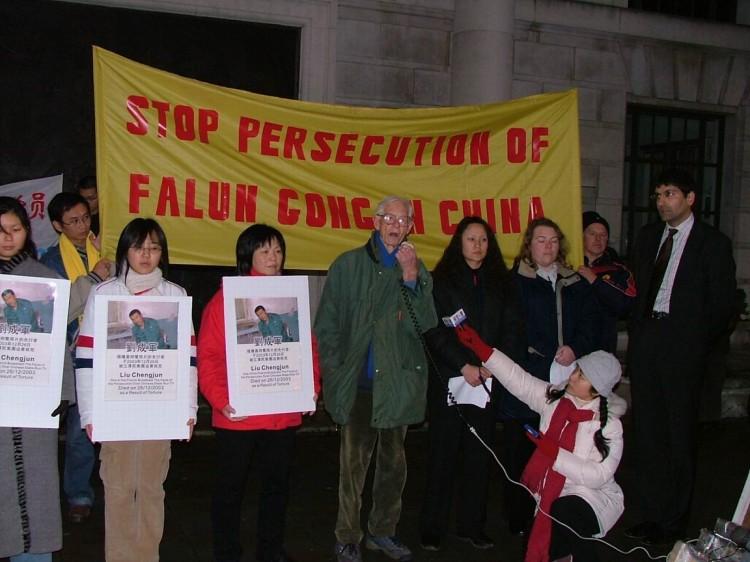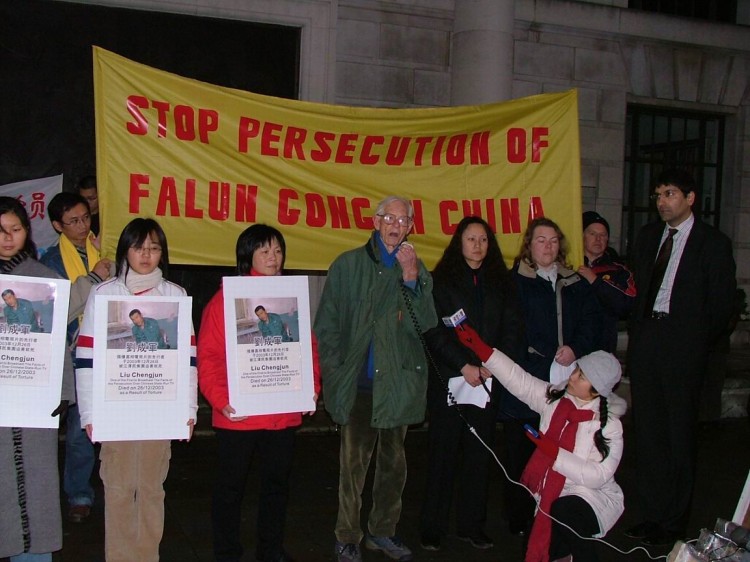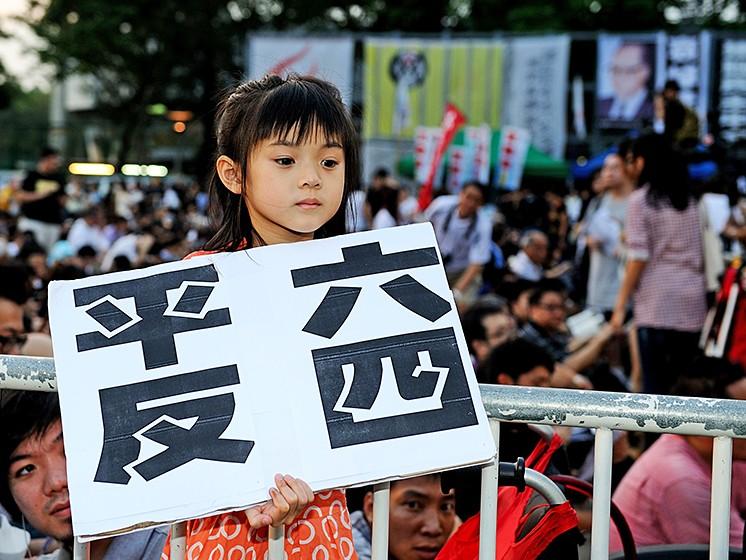Ten years ago, on the evening of March 5, 2002, an estimated 1 million citizens of the northeastern city of Changchun, China, were watching a prime time broadcast of the opening session of the National People’s Congress when the programming suddenly changed. The motionless officials sitting with teacups under a giant, red communist flag were replaced by programs called “Falun Dafa Around the World” and “Suicide, or Homicide Staged by the Government?”
For 50 minutes Sun Changjun, working with several other Falun Gong practitioners, managed to broadcast in the place of the regime’s propaganda accurate information about their banned spiritual practice. Since 2002, the Falun Gong website minghui.org has provided detailed accounts from participants and witnesses of this dramatic event, which are the source for this article.
A resident of Changchun who witnessed the program switch in her college dorm “was literally electrified” by what she saw. “Because it [hijacking the state media] was something that no one in Communist China’s history had done. In my view, it was something that no one had been capable of doing.”
Reign of Terror
As the Falun Gong programming aired, news spread through the city, and more people began turning on their TVs to witness what they thought was the rehabilitation of Falun Gong.
But there had been no rehabilitation and local Party officials were frantic. In some parts of the city, officials were so desperate that they cut off the electricity in order to stop people from watching.
In 2002, Falun Gong was the Party’s No. 1 enemy. Three years before, then head of the Chinese Communist Party Jiang Zemin vowed to “eradicate” Falun Gong, fearing its unprecedented popularity among Chinese citizens.
Changchun officials were scolded by Beijing: one more episode like this, and your easy days of living as Party cadres would be over.
A reign of terror descended on the city. Policemen in Changchun began carrying guns with them, knowing that they would rather kill than risk more pressure from Beijng. Five thousand Falun Gong practitioners were arrested in Changchun and interrogated about the whereabouts of the key members involved in the TV hijacking. At least seven practitioners were known to have been beaten or shot to death right on the spot of the arrest.
Devoted Son
At the age of 26, Sun Changjun was the youngest member of the crew that hijacked the state TV.
Sun grew up in China’s Korean region of Yanji, situated on China’s northeastern border and next to North Korea. Despite academic success in his younger days, he often wondered what the meaning of life was.
Before being banned in 1999, Falun Gong was the most popular qigong method in China. Sun found that the discipline’s teachings based on the principles of truthfulness, compassion, and tolerance answered his lifelong questions, and he strove to live by them.
People familiar with Sun describe him as a devoted son. After Sun graduated from college, he quickly got a position as the secretary of the head of a small town, and was recruited as a potential candidate for the next generation of the communist leadership in that region.
He moved out to go to work, but still visited his parents often. His mother’s feet had been bound in the old days, and ingrown nails made walking particularly painful for her. Sun would get down on his knees, soak her feet in warm water, and carefully remove the ingrown nails.
“Don’t do this. You now work in the government. How embarrassing it would be if people you know see this,” said Sun’s mother with a sense of guilt.
“You are my mother, and taking care of you is the most righteous and proper thing for a son to do” he answered.
Show Trial
Before 2002, Sun had gone to Beijing to explain to officials how he had benefited from practicing Falun Gong with the hope that they would remove the ban. He received a month of detention and was fired from his job.
Sun realized that in the face of a systematic persecution, reaching out to Beijing was useless. No public voice would be allowed to report positively on Falun Gong.
“If we can broadcast truthful information in a big city, more people will be able to see the truth,” Sun Changjun thought.
He then joined a few other practitioners in nearby cities who supported the idea. A crew was formed, and research was started. In the end, with a pair of wire cutters and a DVD player, they were ready to tap into the TV network in Changchun City and set March 5 to be the big day.
Five months later, in August 2002, Sun was captured. He was greeted with a torture method called the “tiger bench.” His hands were tied behind his back and his legs were stretched along a wood bench with his feet lifted up high by several bricks. Sitting in such a pose for two months caused bleeding in his legs and a severe muscle tear from over stretching.
On Sept.15 those involved were given a show trial. Practitioners in Changchun say that the group involved in the highjacking was larger, but because those captured did not break under torture, several escaped capture.
At the trial, the defendants were not allowed to speak. Sun shouted out anyway. The court responded with electric batons, and his skin was severely burnt.
Sun was given a sentence of 17 years. Upon his arrival at the Jilin Province Prison, he was beaten by prison guards and one of his ribs was broken.
Changchun Effect
Witnesses who were detained with Sun said that every once in a while Sun and other members of the crew would be blindfolded and taken by car to a place out of town. When they returned, their bodies would be bloody and full of bruises.
At the end of 2003, Sun was gone for about 70 days. When he came back, ill treatment had taken 50 pounds off him and he could barely walk. Still, he refused to sign papers renouncing Falun Gong.
In 2007, Sun’s leg bones were fractured by another severe beating. The prisoners ordered by guards to torture him were rewarded with reduced sentences. Sun, who was at his last gasp, was refused medical treatment.
Sun is still being detained at Jilin Province Prison and is in urgent need of medical care. He is reported to have late-term tuberculosis, peritonitis, and an accumulation of fluid in his abdomen. Sun still refuses to sign papers renouncing his belief in Falun Gong, and, even though he is said to be on the verge of death, the authorities refuse to release him.
Five members of the highjacking crew have died from torture, and Sun is the last one remaining in prison.
The Changchun incident would later inspire dozens of similar acts throughout and outside of China. More than a dozen incidents of China’s state-run broadcasts being hijacked happened in the following year.
Outside China, a group of Falun Gong engineers in the United States began working on software that could break through the Chinese regime’s Internet censorship. Later, this software would be used by citizens of Iran to fight their government in the 2011 uprising. The Changchun effect continues.
The Epoch Times publishes in 35 countries and in 19 languages. Subscribe to our e-newsletter.






